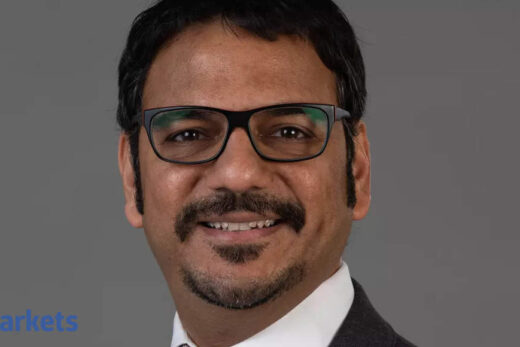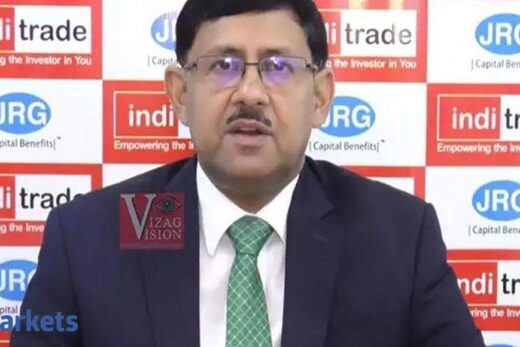Upstox’s three founding pillars Ravi Kumar, Kavitha Subramanian and Shrini Vishwanath share their thoughts on the partnership with the Indian Premier League, the role of Jeff Bezos and Rata Tata in their growth and the difficulties of a pandemic year. The co-founders of the country’s second largest brokerage firm also declared their ambitions of becoming the dominant force in India’s financial services industry and their obsession with the customer.
Following are the edited excerpts:
Do you know the exact moment you realised that the initial influx of users could be something bigger? What was the strategy to capitalise on that opportunity?
Kavitha Subramanian: I think the time when we suddenly realised this was when there was a massive backlog of document scrutiny of new account openings with us because our agents are not there at the call centre to actually go through the KYC (know your customer) documents. There was a massive backlog and that is when we realised that we’ve got to figure out this work-from-home world. We quickly went into that mode and at the same time, we had shored down marketing spends, and were in cash conservation mode. That’s when we realised: ‘yes there seems to be massive demand’.
And I think very interestingly some of the key trends which certainly will continue going forward: one, people are far more comfortable now with transacting online and second, people have understood the value of financial, liquid assets such as the stock markets.
One thing that we got to appreciate is that even one year prior to the pandemic, the industry has already been on a massive upward momentum. Players like us and Zerodha really pushed the boundary and the momentum has already been there to stay. If you look at the number of accounts that were averaging even pre-COVID, I would say that post COVID as well the volumes have increased but it is not something that we would not have possibly been able to without COVID. Did it get easier because of COVID? It probably did.
Kavitha in your opinion, what suddenly changed in the psyche of the average retail investor in these 12 months?
Kavitha Subramanian: Investors are coming to understanding the whole concept that one needs to be partially invested in the equity markets. Again, millennials are the ones who are driving this. A very important thing for us to understand is the distinction between the US market and the India market vis-à-vis the regulations. The Indian market is actually a little more nascent than the US market. So, the regulation in India is set up beautifully to protect the consumer interest and that is something that we at Upstox really believe very strongly. At no point do we tell our consumer “Hey! Why don’t you go and trade a little more?” We do not provide tips.
How does it help to have someone like Ratan Tata backing you?
Kavitha Subramanian: We are an investee company of Ratan Tata and a constant quest for us is how to bring the ethics that the Tata Group has and, very specifically, Mr Ratan Tata carries with his name to the company. That is a conversation that we are having with him where he is helping us walk through that process and we feel extremely privileged to be hearing from the horse’s mouth on how to do this. Customer-centricity is exceptionally important to us and I would add that our partnership with the IPL is an extension of exactly that.
Why IPL? What are you looking to achieve from this partnership?
Kavitha Subramanian: We at Upstox think IPL and financial services are very similar and let me just tell you what I mean by that. Cricket is a gentleman’s game. If you nick the ball and the umpire is calling you out, you are going to walk so there is a set of ethics and there is a code of conduct which is just embedded in cricket. What IPL did is it took something that is a national religion in India and it completely revamped the format. That is what we are trying to do exactly with financial services and portfolio management. We want to keep the ethics and the customer-centricity but make financial management relevant to young people.
Our entire goal with the IPL is frankly how we make sure that people are financially aware. We have 500 million Indians across the globe that will be watching the IPL over a span of 45 days; how do we just bring this message out. One of things we are proud of is that 65-70 per cent of our customers at Upstox are first-time entrants in the equity market. We are certainly doing our bit to improve equity participation but clearly at 4 per cent of the population in equities, it is nowhere near enough. Our goal here is to help leapfrog the equity participation in the country.
The discount-broking model has been a raging success, but now a lot of your competitors are catching up and these are competitors who are institutions with deeper pockets and a larger institutional muscle. How do you plan to keep them at bay going ahead?
Ravi Kumar: There are many ways of doing that. First of all, we think that the potential for growth is immense in India. We are at 4% equity participation in India and we are just scratching the surface. We think that the competition is not in stealing business from each other, it is more about how do you grow the market and how do you onboard a whole new generation of investors and traders. We focus a lot on products in our technology. I think associating ourselves with a platform like the IPL is a great way to really broadcast ourselves out there in a very big way.
Kavitha Subramanian: I think if you look at our history, a few years ago we were number 50 and now we are number two. I do believe that customers are voting with their feet, they do see our value proposition is something that they enjoy and we are just going to stick to being customer-obsessed. I think this is what Jeff Bezos said: you can either be customer-obsessed or you can be competition-obsessed and we want to be clearly focussed on the customer. Hopefully, we can keep accelerating our growth and that is one of the goals here.
Zerodha has said that they expect a sharp drop off in revenues and volumes in FY22. Do you expect something similar?
Kavitha Subramanian: Certainly our attempt is to go out broad based. With IPL we are talking about an audience of about 500 million, so at that scale I just think that it is a brave new world. There is a whole new volume of customers who are to be on-boarded and maybe their trading frequency would be lower than the initial set of highly-motivated traders we saw but we do believe that there is enough business out there. The industry is far from maturity.
At our nascent stage, frankly there is so much growth left. We are trying to grow the industry and ultimately the customer should be the winner and hopefully our offering is so powerful that the customer chooses us. So far, like I said, we have managed to make inroads, we have managed to improve our rankings vis-à-vis even the rest of the competition but honestly that is not even the benchmark because we are all too young, we are all too small. As an industry, we all need to grow up so hopefully that is what happens over the next three years.
Shrini, in your opinion, how do you see the technology evolving within the broking industry going forward and what is the next step in the evolutionary process?
Shrini Viswanath: When we came in we differentiated ourselves on pricing. Now everybody is a discount-broker, whether it is a new entrant or whether it is the legacy players. Pricing is not the place we want to differentiate. Now it starts shifting to the product and up till now, not just in India but globally, what we have seen is that the product has been built for the last three, four years to be very transaction-oriented. What we see as the evolution, and how firms are going to start differentiating themselves, is that why not open the app just to discover what is happening around you, whether that is the stocks you are following or the news that are impacting the financial markets or any specific news about holdings that you own. And also in terms of, say offering new products that might come under the gamut of a traditional financial player or a bank. It is a challenge but general evolution is that you want to start cross-selling and adding different products. We are going to add new products to make customers come back in a way where they discover things and are not just there to transact.
In that case would you suggest the idea would be to ultimately become a ‘super app’?
Shrini Viswanath: I think we are still debating whether or not it will be a super app or a splinter of apps and I think this is a very large debate in the product community. Generally, in the West we have seen people not take the super app approach. You generally see different apps for everything. In India and China, you see the concept of a super app where you have one app that does everything. The trade off is obviously getting a clutter of things that nobody can do anything with versus having just the right mix of products that it works for the consumer mindset. The way I will put it is that we are definitely looking at expanding the scope of services that we want to offer to the end customer, whether that is delivered in a single app or different apps that remains to be seen.
Upstox’s last fundraising was from Tiger Global in 2019. Do you feel that you will probably have to raise funds going ahead and would the IPO route be one of those possible avenues that you could explore?
Ravi Kumar: We are always talking to investors. There is a lot to learn from investors, we are always having discussions and we keep all our options open. For the moment, we are well funded and financials are very healthy.
Where do you see Upstox in another five years time and the bigger question here is that will Upstox be the number one broking company in the country in the next five years?
Kavitha Subramanian: We want Upstox to be the financial services brand of choice to millennials across the spectrum. So we are no longer going to talk about just broking, we want to be in financial services. We want to get to at least about 300 million Indians over the next five years because. There are 700 million bank accounts today and our goal is to make a dent on that landscape. We are certainly not trying to go for number one or number two, we want to be in an industry by ourselves. We want to be that brand of choice by a mile by focusing heavily on customer obsession.
Ravi Kumar: We are living in the fastest growing economy in the world. We want to go as mass as possible and that will require a lot of innovation. We are adding a lot to that tool kit and in the next few years to come you will see a tremendous amount of innovation coming out of Upstox.
Shrini Viswanath: We have got a massive population here in India, so we could potentially actually be the largest in the world. When it comes to technology in AI and machine learning, what we really see AI and ML in the fintech world is in terms of personalization. We are not here to tell the end user to buy this or sell that, we are here to be a part of that customer’s journey.



